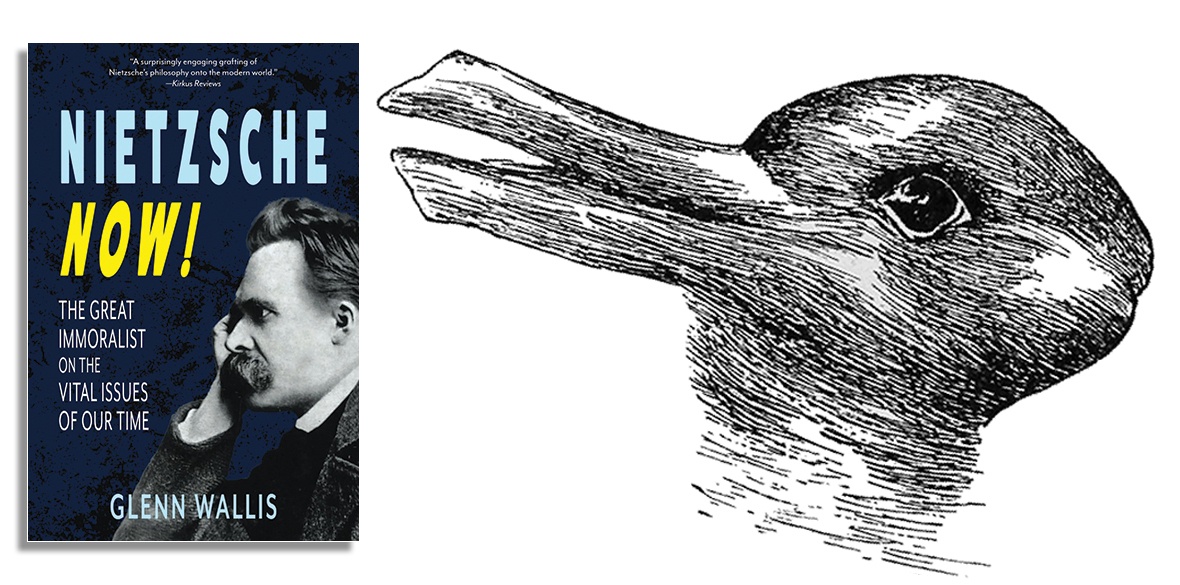This is the last article you can read this month
You can read more article this month
You can read more articles this month
Sorry your limit is up for this month
Reset on:
Please help support the Morning Star by subscribing here
Nietzsche Now!
Glenn Wallis, Warbler Press, £19.95
HUMANS enter an age dominated by the super-smarts of artificial intelligence (AI) and will soon be immersed in a souped-up quantum metaphysics where things are true and not true at the same time, and reality has the double-bind effect of the duckrabbit illusion.
Heady stuff ahead. Glenn Wallis believes it’s time for a revaluation of all values and, in his new book, Nietzsche Now! The Great Immoralist on the Vital Issues of Our Time he revisits some of the German philosopher’s most salient and controversial critiques of modern Western society.
Nietzsche often said that he had come too soon with his penetrating observations, and that the world was not ready for his truths. Wallis believes that the time is ripe and that we need Nietzsche now more than ever.
He brings the reader through what Nietzsche wrote about a number of topics of interest to a modern audience concerned about the future in a world where personal identity, the responsibilities of governance, and the politics of freedom are in disarray at a time of global, and potentially catastrophic change.
Wallis believes that Nietzsche’s work has practical application to these crises. “This book is a guide to thinking,” writes Wallis, rather than a manifesto. “Exacerbated by an internet culture that is accessible via our smartphones literally every minute day and night, we are at a loud, hostile, and very public impasse concerning vital questions of our shared social life.”
Given the “grimly divided” quality of so much public discourse these days, Wallis shows the reader how we may proceed with Nietzsche’s guidance.
One section of real value deals with the construction of democracy. He takes the reader through how Nietzsche saw democracy as an antidote to tyranny and follows that up with a chapter on how democracy can slide into tyranny.
Wallis argues that Nietzsche was worried about the homogenisation process of our preferred form of government. He writes: “When the democratic prophylactic, when the taste for and mentality of democracy, slips from being a cautiously regulated ‘stimulant’ for dynamism, to being a crude ‘safety valve’ against dangerous tendencies, then it becomes a ‘bad habit’.”
Another topic that Wallis enthusiastically addresses is that of identity (and its politics). He writes that: “It may be his treatment of identity that makes Nietzsche such a revolutionary thinker for our times.”
In an amusing, if convoluted, example of identity issues today, Wallis brings in pop diva Gwen Stefani, and deconstructs the time she told an “Asian” reporter that “I am Japanese.”
A big paper kerfuffle broke out, and out of the smoke came the fact that the reporter in question was Filipino, Stefani was Irish-Italian-American, and she had been greatly influenced by Japanese culture in her youth.
Wallis uses this example to discuss Nietzsche’s notion of identity. “Could [Stefani’s blurt] conceivably be considered wholly inconsequential?” Wallis wonders. “In today’s environment,” he writes, “such queries almost predictably meet with a resounding NO! It caused injury.” Such ressentiment is destructive to notions of pluralism.
Nietzsche NOW! is an excellent, accessible read and highly recommended.











